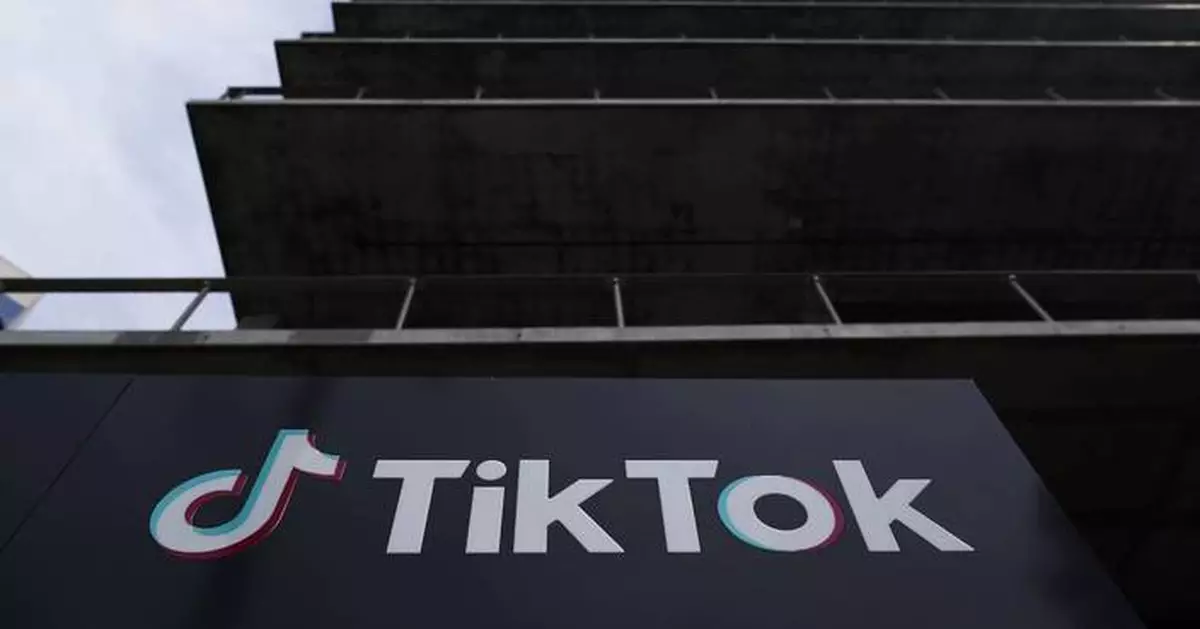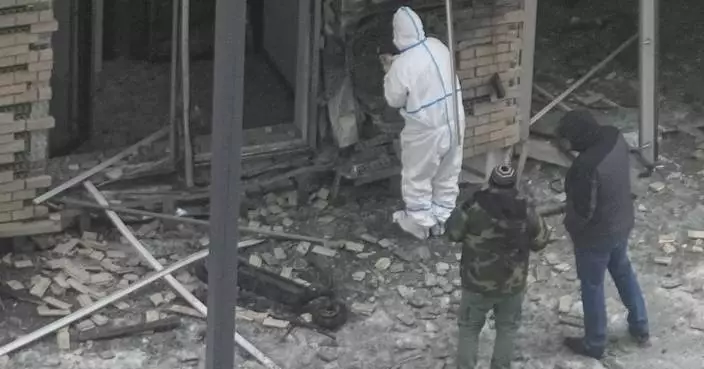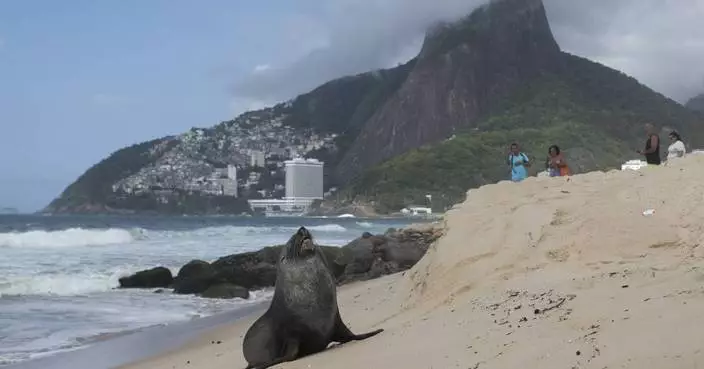WASHINGTON (AP) — The Supreme Court on Wednesday said it will hear arguments next month over the constitutionality of the federal law that could ban TikTok in the United States if its Chinese parent company doesn't sell it.
The justices will hear arguments Jan. 10 about whether the law impermissibly restricts speech in violation of the First Amendment.
The law, enacted in April, set a Jan. 19 deadline for TikTok to be sold or else face a ban in the United States. The popular social media platform has more than 170 million users in the U.S.
It's unclear how quickly the high court might issue a decision.
Lawyers for the company and China-based ByteDance had urged the justices to step in before Jan. 19. The high court also will hear arguments from content creators who rely on the platform for income and some TikTok users.
The timing of the arguments means that the outgoing Biden administration's Justice Department will make the case in defense of the law that passed Congress with bipartisan support and was signed by Democratic President Joe Biden in April.
The incoming Republican administration might not have the same view of the law.
President-elect Donald Trump, who once supported a ban but then pledged during the campaign to “save TikTok,” has said his administration would take a look at the situation. Trump met with TikTok CEO Shou Zi Chew at Trump's Mar-a-Lago club in Florida on Monday.
The companies have said that a shutdown lasting just a month would cause TikTok to lose about one-third of its daily users in the U.S. and significant advertising revenue.
The case pits free speech rights against the government’s stated aims of protecting national security, while raising novel issues about social media platforms.
A panel of federal judges on the U.S. Court of Appeals for the District of Columbia Circuit unanimously upheld the law on Dec. 6, then denied an emergency plea to delay the law's implementation.
Without court action, the law would take effect Jan. 19 and expose app stores that offer TikTok and internet hosting services that support it to potential fines.
It would be up to the Justice Department to enforce the law, investigating possible violations and seeking sanctions. But lawyers for TikTok and ByteDance have argued that Trump’s Justice Department might pause enforcement or otherwise seek to mitigate the law’s most severe consequences. Trump takes office a day after the law is supposed to go into effect.
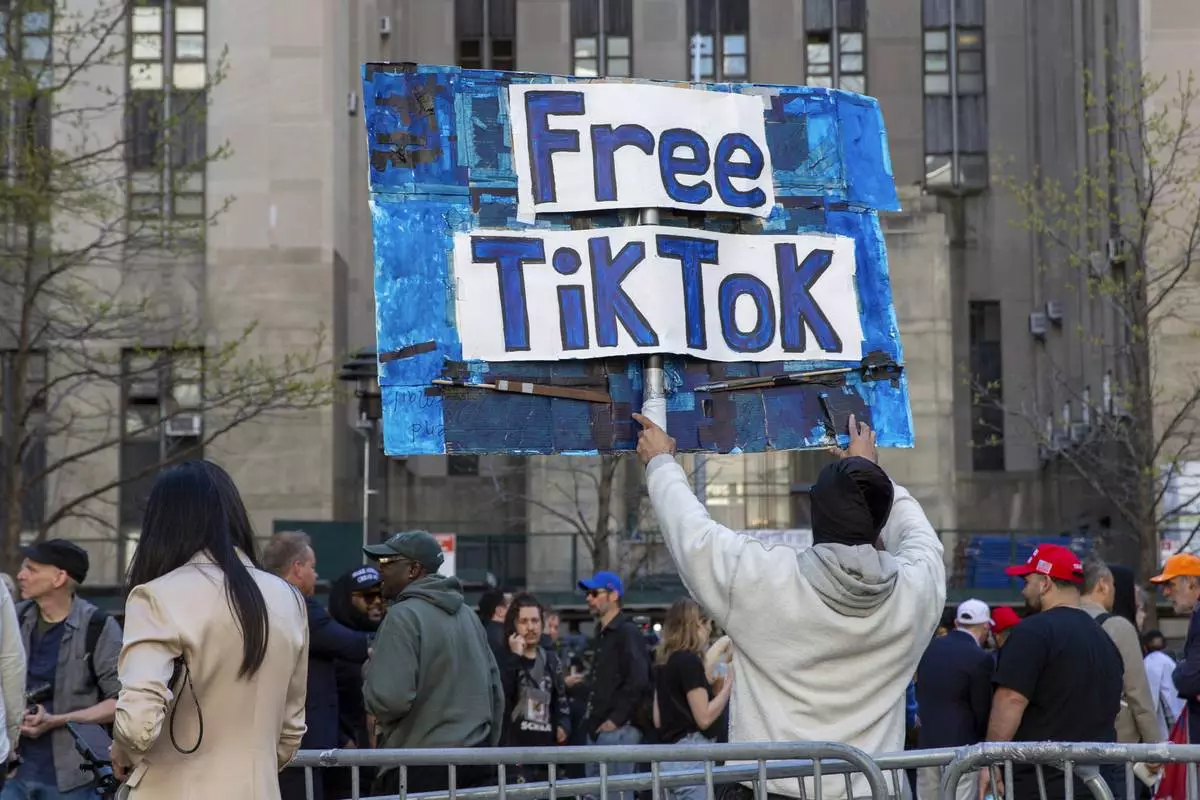
FILE - A man carries a Free TikTok sign in front of the courthouse where the hush-money trial of Donald Trump was underway on April 15, 2024, in New York. (AP Photo/Ted Shaffrey, File)
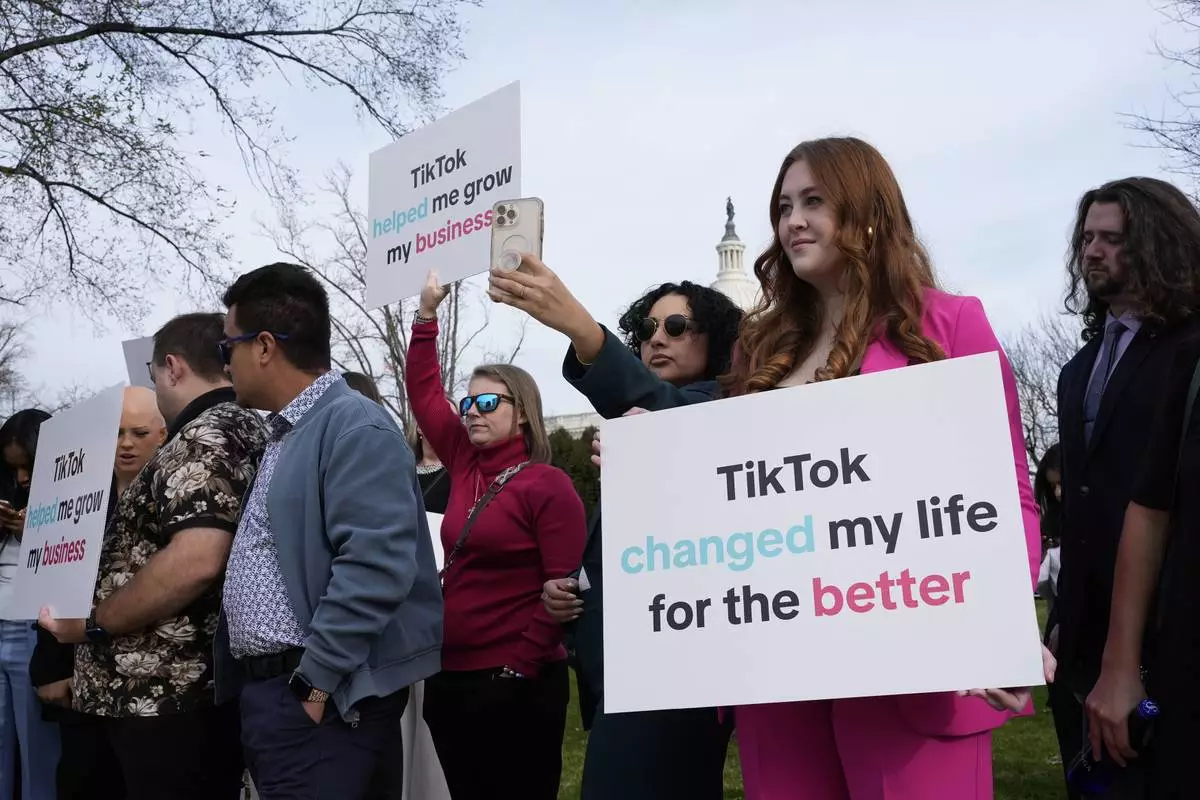
FILE - Devotees of TikTok gather at the Capitol in Washington, as the House passed a bill that would lead to a nationwide ban of the popular video app if its China-based owner doesn't sell, on March 13, 2024. (AP Photo/J. Scott Applewhite, File)
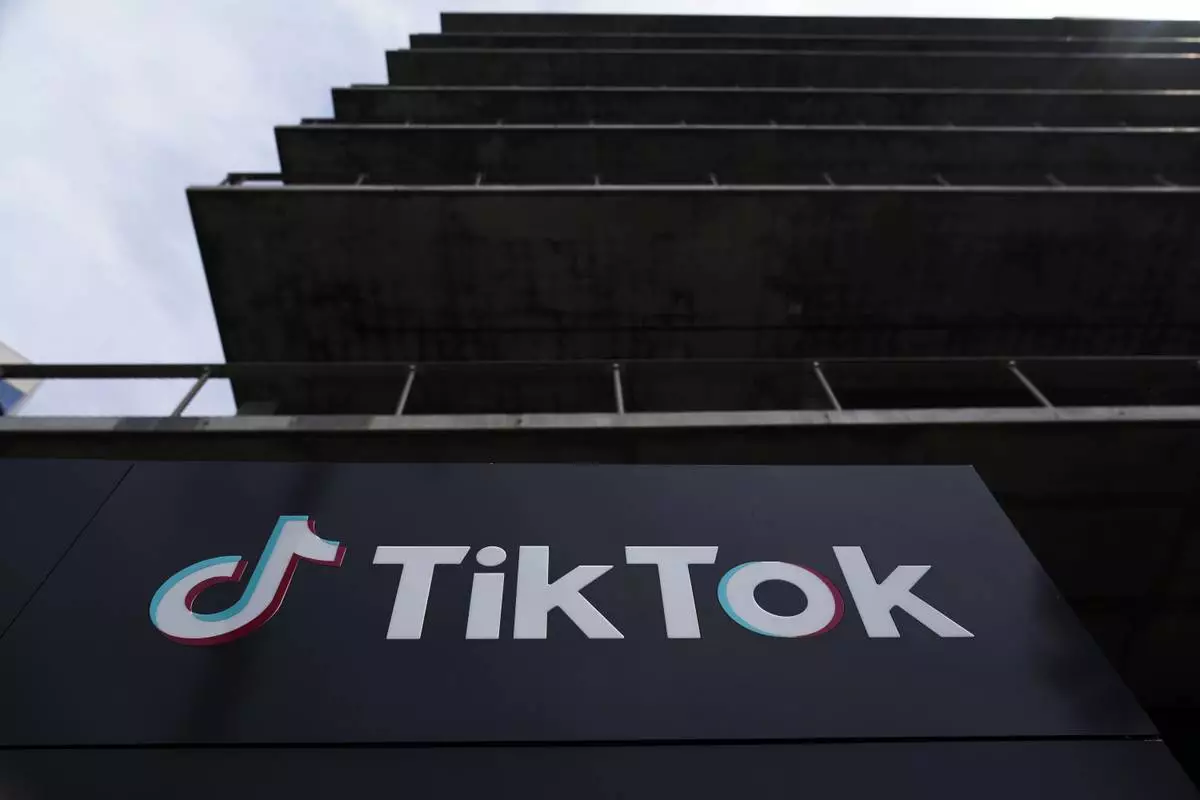
FILE - The TikTok Inc. building is seen in Culver City, Calif., March 17, 2023. (AP Photo/Damian Dovarganes, File)
WASHINGTON (AP) — The Environmental Protection Agency on Wednesday granted two requests from California to enforce strict standards for vehicle emissions, including a rule aimed at banning sales of new gasoline-powered cars in the state by 2035. The incoming Trump administration is likely to try to reverse the action.
The California rule is stricter than a federal rule adopted this year that tightens emissions standards but does not require sales of electric vehicles.
EPA said its review found that opponents of the two waivers did not meet their legal burden to show how either the EV rule or a separate measure on heavy-duty vehicles was inconsistent with the federal Clean Air Act.
“California has longstanding authority to request waivers from EPA to protect its residents from dangerous air pollution coming from mobile sources like cars and trucks,” EPA Administrator Michael Regan said in a statement. “Today’s actions follow through on EPA’s commitment to partner with states to reduce emissions and act on the threat of climate change.”
The new waiver is important not only to California but to more than a dozen other states that follow its nation-leading standards on vehicle emissions.
Even so, the waiver is likely to be short-lived. President-elect Donald Trump has said he will move to revoke all California waivers as part of an industry-friendly approach that includes boosting production of fossil fuels and repealing key parts of a landmark 2022 climate law.
Trump rescinded California's authority on emissions in 2019, only to be reversed three years later by the Biden EPA, which restored the state’s authority in 2022.
Any effort by the new administration is likely to spawn a new set of legal challenges that could delay any action.
Democratic Gov. Gavin Newsom, who often touts California's leadership on climate policy, has cited the advanced clean-cars rule as a key accomplishment.
Major automakers support the state standards “ and California is hitting our goals years ahead of schedule,” Newsom said earlier this year. “We won’t stop fighting to protect our communities from pollution and the climate crisis.”
Ford, Honda, Volkswagen and other major automakers are meeting current California emission standards, but some major car companies questioned the latest EPA waiver.
Most of the Democratic-leaning states that have adopted California’s rules — clustered along the West Coast and in the Northeast — are not selling anywhere near the 35% level of EV sales required next year and are unlikely to meet the 2035 target of 100% EV sales, according to the Alliance for Automotive Innovation, a large industry group.
“Achieving the sales mandates under current market realities will take a miracle. There needs to be balance and some states should exit the (California) program,'' said John Bozzella, the group's CEO.
Automakers are producing electric vehicles, Bozzella said, “but there’s a huge gap between these EV sales mandates and a customer’s reasonable expectation they can still choose what kind of vehicle to drive." He expects Trump to revoke the California waiver next year.
Scott Vazin, a spokesman for Toyota in North America, said approval of the California waiver “will distort the auto industry as companies funnel zero-emission vehicles to the states that have adopted California’s rules." If a customer in a state that follows California can't afford an EV “or it doesn’t meet their needs, there may not be a non-electric vehicle on the lot to purchase for their mobility needs,'' Vazin said.
Environmental groups hailed the Biden administration's action.
“EPA’s approval is a critical step forward in protecting our lungs from pollution and our wallets from the expenses of combustion fuels,” said Paul Cort, director of Earthjustice’s Right To Zero campaign. “The gradual shift in car sales to zero-emissions models will cut smog and household costs while growing California’s clean energy workforce."
Kathy Harris, director of clean vehicles at the Natural Resources Defense Council, said the decision shows respect for California and other states.
“California decided that transitioning to cleaner, zero-emission vehicles is the best way to address the unique (air pollution) burdens it faces,” she said. “This is exactly how our system of federalism should work. If other states don’t like California’s approach, they don’t need to follow it. But no one should object to the longstanding authority of states to act to protect their residents.”
The EPA's action comes as the Supreme Court said last week that it will take up a business-backed appeal challenging an earlier California waiver issued by the Biden administration. The justices agreed to hear an appeal filed by fuel producers who object to an EPA waiver granted in 2022. The waiver allows California to set more stringent emissions limits than the national standard.
The high court will not be reviewing the waiver itself but a related issue: whether fuel producers have legal standing to challenge the federal waiver. A federal appeals court ruled that the companies lacked the right to sue because they produced no evidence that they would be affected by the waiver, which directly affects vehicle manufacturers.
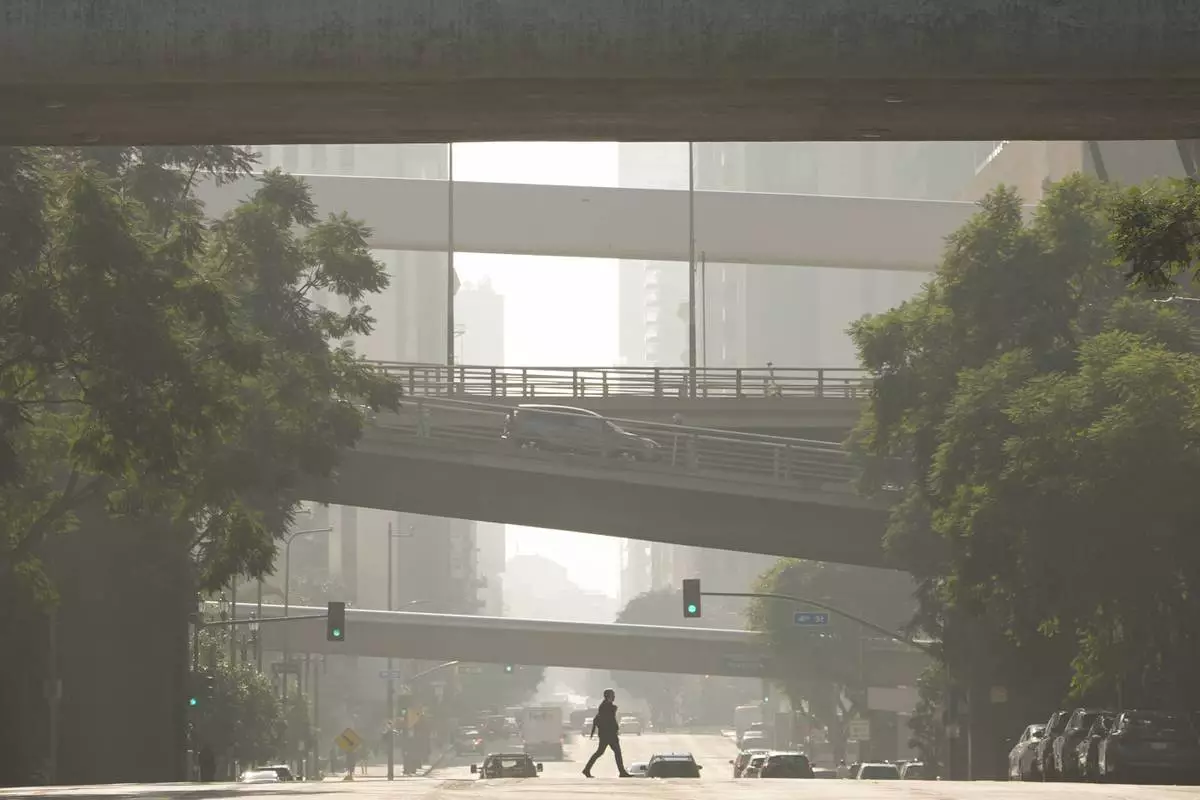
A person crosses a street as smog fills the air Wednesday, Dec. 4, 2024, in Los Angeles. (AP Photo/Andy Bao)





